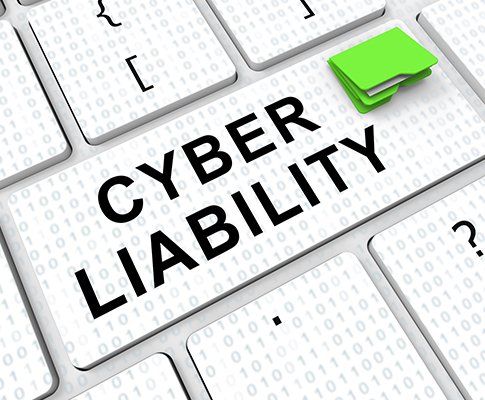Commercial Property Insurance
This policy was introduced in 1986 and is commonly referred to as CGL. Commercial General Liability coverage is the basic sort of commercial insurance and extends only to liability claims of bodily injury or property damage. CGL is the foundational point to any business' insurance plan, CGL works best as a part of a more complex insurance policy and not solely as a standalone insurance policy.
Coverage under a CGL policy is solely provided for accidents which occur on your premises or at your customer’s location. A general liability policy will only cover people and property you and/or your employees come interact with every day. This policy will be tailored to your specific business requirements and can include operations liability, product liability, premises liability, completed operations liability, medical payments, personal injury liability, contractual liability by endorsement, and fire damage liability clauses.
*PLEASE NOTE:
These policies do NOT cover errors and omissions type claims as related to the delivery of your professional services. However, we do offer professional liability/errors and omissions policies are available for specific professions including medical, legal, engineers, veterinarians, accountants, barbers and beauticians, computer programmers and software designers at an additional charge.
Cyber Liability
Is a term which has evolved much in the last twenty years. As the digital world as taken over our world, documents have gone from being housed on paper in a single location to being housed within a series of networks. By June of 2014, 9,015,970 personal records were exposed during 342 breaches associated in 2014 alone. Cyber security can no longer afford to be overlooked.
Cyber liability insurance is designed to cover consumers of technology services or products. The policies cover a variety of both liability and property losses that may arise when a business engages in various electronic activities, such as selling products or services on the Internet or collecting data within its internal electronic network.
Most notably, cyber and privacy policies cover business liability for data breaches in which the firm's customers' personal information, such as Social Security or credit card numbers, are exposed and/or stolen by a hackers or other criminals who have illegally hacked into the business' network. Tennessee statutes require that when a data breach occurs that the business must incur the costs of notifying each consumer to the data breach and the information which is subject to the aforementioned breach.
Policies can cover the expenses associated with data breaches, such as: investigations, the remediation, legal costs, credit monitoring, notification costs, fines and penalties, costs to defend claims by state regulators, and loss resulting from identity theft. In addition, policies can cover liability arising from website media content from: (a) business interruption, (b) data loss/destruction, (c) computer fraud, (d) funds transfer loss, and (e) cyber extortion.
**PLEASE NOTE:
Cyber and privacy insurance is often confused with technology errors and omissions (tech E&O) insurance. In contrast to cyber and privacy insurance, tech E&O coverage is intended to protect providers of technology products and services, such as computer software and hardware manufacturers, website designers, and firms that store corporate data on an off-site basis. Nevertheless, tech E&O insurance policies do contain a number of the same insuring agreements as cyber and privacy policies. We do offer E&O coverage, but as a separate policy.
Professional Liability
Professional liability insurance (PLI), also called professional indemnity insurance (PII) but more commonly known as errors & omissions (E&O) in the US, is a form of liability insurance that helps protect professional advice- and service-providing individuals and companies from bearing the full cost of defending against a negligence claim made by a client, and damages awarded in such a civil lawsuit. Professional liability insurance may take on different forms and names depending on the profession. For example, in reference to medical professions it is called malpractice insurance, while errors and omissions (E&O) insurance is used by insurance agents, consultants, brokers and lawyers. Professions that commonly purchase professional liability insurance include accounting, engineering and financial services, construction and maintenance, general contractors, plumbers, etc. (many of whom are also surety bonded). Some charities and other nonprofits/NGOs are also professional-liability insured.
The primary reason for professional liability coverage is that a typical general liability insurance policy will only respond to a bodily injury, property damage, personal injury or advertising injury claim. Other forms of insurance cover employers, public and product liability. But various professional services and products can give rise to legal claims without causing any of the specific types of harm covered by such policies. Common claims that professional liability insurance covers are negligence, misrepresentation, violation of good faith and fair dealing, and inaccurate advice.
You should seriously consider professional liability insurance coverage if your business:
- provides a professional service.
- regularly gives advice to clients.
- is requested by a client to have professional liability insurance to complete a contract.
Director and Office Liability
Director and Office Liability, often referred to as D&O, is insurance which is payable to the officers and directors as reimbursement for losses or as an advancement for defense costs in the event an insured has a loss as a result of legal action for alleged wrongdoing as acting officer and/or director. D&O insurance does not cover bodily injury, property damage, dishonest or fraudulent acts, accounting of profits, pending and prior litigation, ERISA claims, pollution and breach of contracts. This insurance protects the personal assets of officers and directors for their actions serving as officers/directors.
- Side A covers directors, officers, and employees for defense costs, settlement fees, or judgments in the event that the company or non-profit cannot indemnify them, such as if the company has declared bankruptcy.
- Side B covers the company or organization for directors', officers', and employees' losses when it does indemnify them.
- Side C coverage is also known as "entity coverage" because it financially protects the corporation in its own right.





